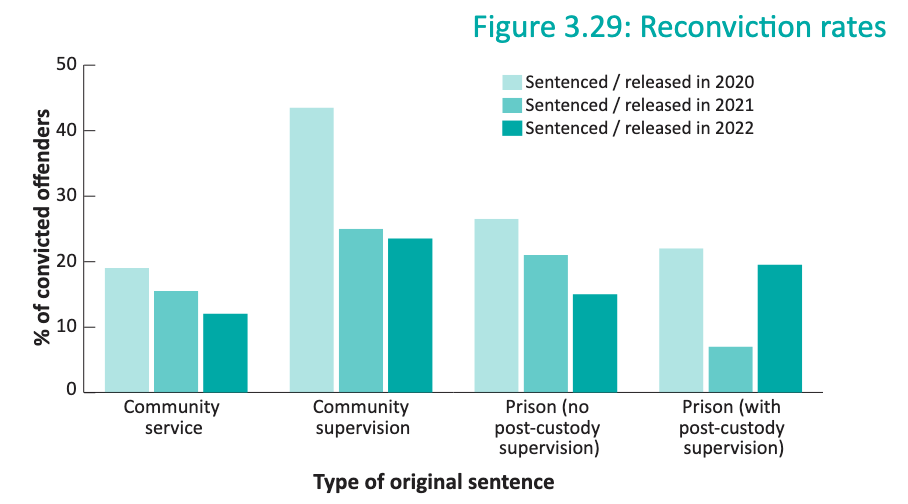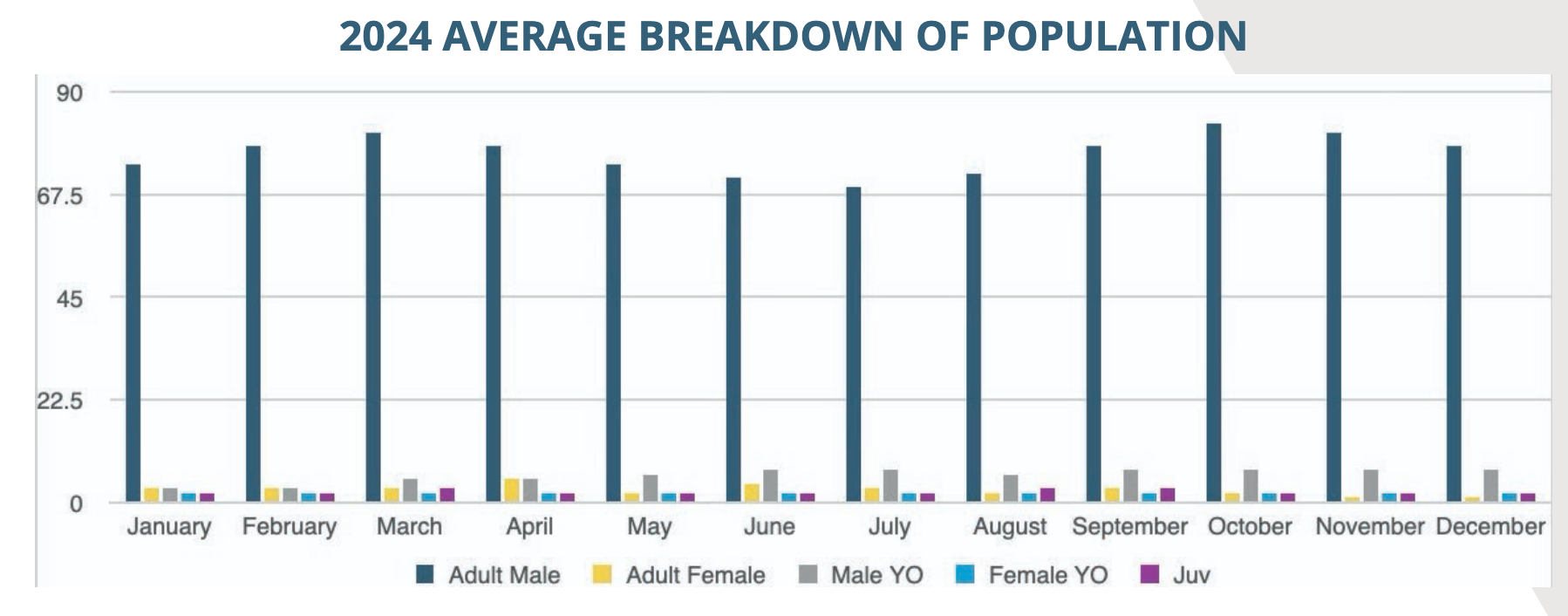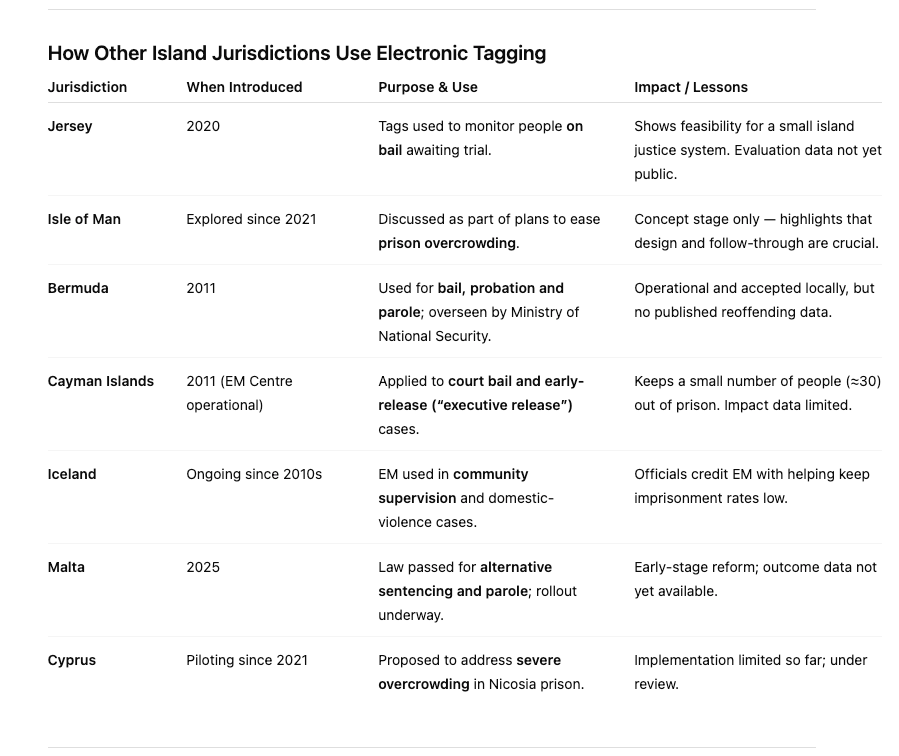Prisoners can leave custody with a sense of accomplishment, only to then be abandoned in the community

- Watchdog suggests more help is needed for people after being released from prison.
- Lack of community support and housing difficulties highlighted in annual report
- General praise for work of the prison
- Concern about rising number of female prisoners
- Recommendation that electronic monitoring is used as an alternative to custodial sentences
Not enough support is available to people when they are released from prison, an independent panel that monitors its operation has warned.
Concern about the issues raised in the 2024 Independent Monitoring Panel Annual Report has led to deputies pushing for it to be debated by the States at this week’s meeting.
The report acknowledges that there has been a marked improvement in resettlement planning in recent years, but indicated that more needs to be done.
Elsewhere in its report, the panel has advocated for the use of tagging as an alternative to custodial sentences and discussed the impact of the rise in the female prison population and the positive response by the prison to that.
Rehabilitation of prisoners from the UK housed here has also been impacted by being unable to transfer them to be closer to their families because of overcrowding in the UK.
The Panel's role is to provide independent oversight of the day-to-day operations of the prison and its conditions, monitoring the administration, the treatment of prisoners and whether the statutory objectives are being met.
Chair Andie Fuller said that the overall atmosphere at Les Nicolles had been positive throughout the year.
“Panel members have observed prisoners engaging meaningfully in education and work areas and the Prison has continued to perform well, with a reported reduction in re- conviction rates in January 2025.

“However, the Panel would like to highlight that insufficient support is available to individuals upon their release from Prison.
“There is currently no community-based facility offering shelter, resources, or transitional opportunities for those seeking to reintegrate into society and lead law-abiding, productive lives.
“Many prisoners leave custody with a sense of accomplishment, only to feel abandoned upon returning to the community.”
In its report, the panel says that over the years, there has been a marked improvement in resettlement planning, with better coordination of activities within the prison and stronger relationships developed to help with potential employers.
“These efforts have positively impacted prisoners' opportunities for successful reintegration into society.
“Despite this progress, the role of the Resettlement Officer remains particularly challenging. It involves not only coordinating a wide range of support services but also addressing complex individual needs and systemic barriers that can hinder a smooth transition back into the community.
“We recognise the tremendous effort happening behind the scenes to support prisoners as they prepare for life after release, whether it’s helping them find accommodation, work opportunities, meaningful activities, or positive ways to engage socially.
“We should like to recognise the contribution being made by local charity Caring for Ex- Offenders in this regard. However, we also want to urge the States of Guernsey to address the ongoing housing crisis which has been a prominent issue in the media throughout the year.”
The panel provided a summary of concerns raised by prisoners they had spoken to.
One of them was about what would happen on release, "particularly the lack of accommodation and support available in the community”.
“This is especially challenging for those convicted of offences that are less tolerated by society, such as sexual offences, as they often face additional barriers to securing housing and support to reintegrate - many experience estrangement from family, further limiting their support network and increasing the risk of isolation upon release, which can increase the risk of re-offending.”
Women in prison
The panel said it was concerned to see the rise in the number of female prisoners in 2024.
“Research in the UK suggests that prison sentences may be disproportionate and inappropriate for many women, particularly given their unique needs and circumstances.
“Women are more likely to commit non-violent, low-level offences, often linked to poverty, addiction, or trauma. Many women in prison are primary caregivers and have experienced abuse, making incarceration especially disruptive for families.
“Also, prisons, which are typically designed for male prisoners, often fail to provide the necessary rehabilitative support for women and community-based alternatives are more effective in addressing the underlying causes of offending and promoting rehabilitation.”
This year the UK has enacted plans to make sure fewer women are sent to prison.
As the number of women in custody continues to grow, the need for tailored strategies to address challenges that include female prisoners overhearing male prisoners shouting abuse from their wing has become more apparent, the panel said.
“Managing the dynamics of a mixed prison population is a complex process, requiring careful consideration to ensure that the safety, dignity and rehabilitation of all prisoners remains a priority.
“The Guernsey Prison has risen to the challenges faced by this population and adjustments were made throughout the year to ensure that the female population had access to varied educational and work opportunities and that their specific needs were being met.”

The average daily prison population throughout 2024 was 90 with the highest daily population reaching 99 and the lowest 80. This was an increase in 2023 (79) and 2022 (81).
In his annual report, Prison Governor John de Careret acknowledged the complex mix of the prison population, with “an increase in sex offenders, women, and the continued accommodation of children within the environment”.
“The rise in numbers was not assisted by a freeze on off island transfers, which was caused by significant accommodation issues throughout the English and Welsh Prison system.
“The population was, at times, difficult to manage, which is reflected in the increase in the use of force statistics contained within this report. The staff response to these challenges was excellent and they should be recognised for their hard work and dedication to continue to provide a safe and secure Prison throughout the year.”
Use of Force includes any physical intervention, even something as simple as guiding someone away.
In 2024, the number of reported incidents was 33 (20 in 2023 and 36 in 2022). The main reasons for using force were to maintain Good Order and Discipline. Injuries to both prisoners and staff were minimal.
Tagging recommendation
The panel has recommended that Home Affairs explores electronic monitoring, something that has been used in England and Wales since 1999.
“Throughout the year, we have heard from the Governor about the pressing need for courts to have access to a wider range of sentencing options.
“Expanding these options could provide more tailored and effective ways to address offending behaviour while reducing the reliance on custodial sentences.
“One such option suggested is the introduction of electronic monitoring (tagging).
“This approach could serve as a valuable alternative to imprisonment, particularly for women and young people, who may be disproportionately affected by a prison sentence.
“Tagging could allow individuals to remain in their community while being monitored, enabling them to maintain family ties and accommodation, access education or employment opportunities and engage with rehabilitation programmes without the disruption that incarceration brings.
"The use of electronic monitoring could also reduce the Prison population and provide a more cost-effective means of addressing lower- level offending.”
Would tagging make a difference?
As recommendations are again made to introduce electronic tagging to manage offenders in the community, experience from other jurisdictions suggests it could both reduce pressure on prisons and support rehabilitation—if implemented carefully. But examples found for other islands have limited data on outcomes
Norway: Fewer reoffenders, fewer prisoners
Norway uses electronic monitoring as a front-door alternative to short prison sentences, allowing offenders to serve time at home under strict curfews. The policy aims to keep people working and connected to their families while easing overcrowding.
A large-scale evaluation found that replacing prison with EM led to around a 15% drop in two-year recidivism and fewer new offences per person. Researchers credit the improvement to offenders avoiding the stigma and job loss that often come with incarceration.
(Source: Norwegian Ministry of Justice; Andersson, M. et al., “Incarceration, Recidivism and Employment: Evidence from Randomized Electronic Monitoring”, 2020.)
Finland: Early release with supervision
Finland operates a “supervised probationary freedom” programme that uses electronic tags to monitor people in the final months of their sentence. On any given day, about 200 prisoners—around 7% of the national total—are managed this way instead of behind bars.
Authorities describe the system as one of the country’s most effective rehabilitative tools, helping participants reintegrate through continued employment and family contact. Finnish studies link such community-based sanctions with lower reoffending than comparable prison terms.
(Source: Finnish Criminal Sanctions Agency, 2018; Lappi-Seppälä, T., University of Helsinki.)





Comments ()